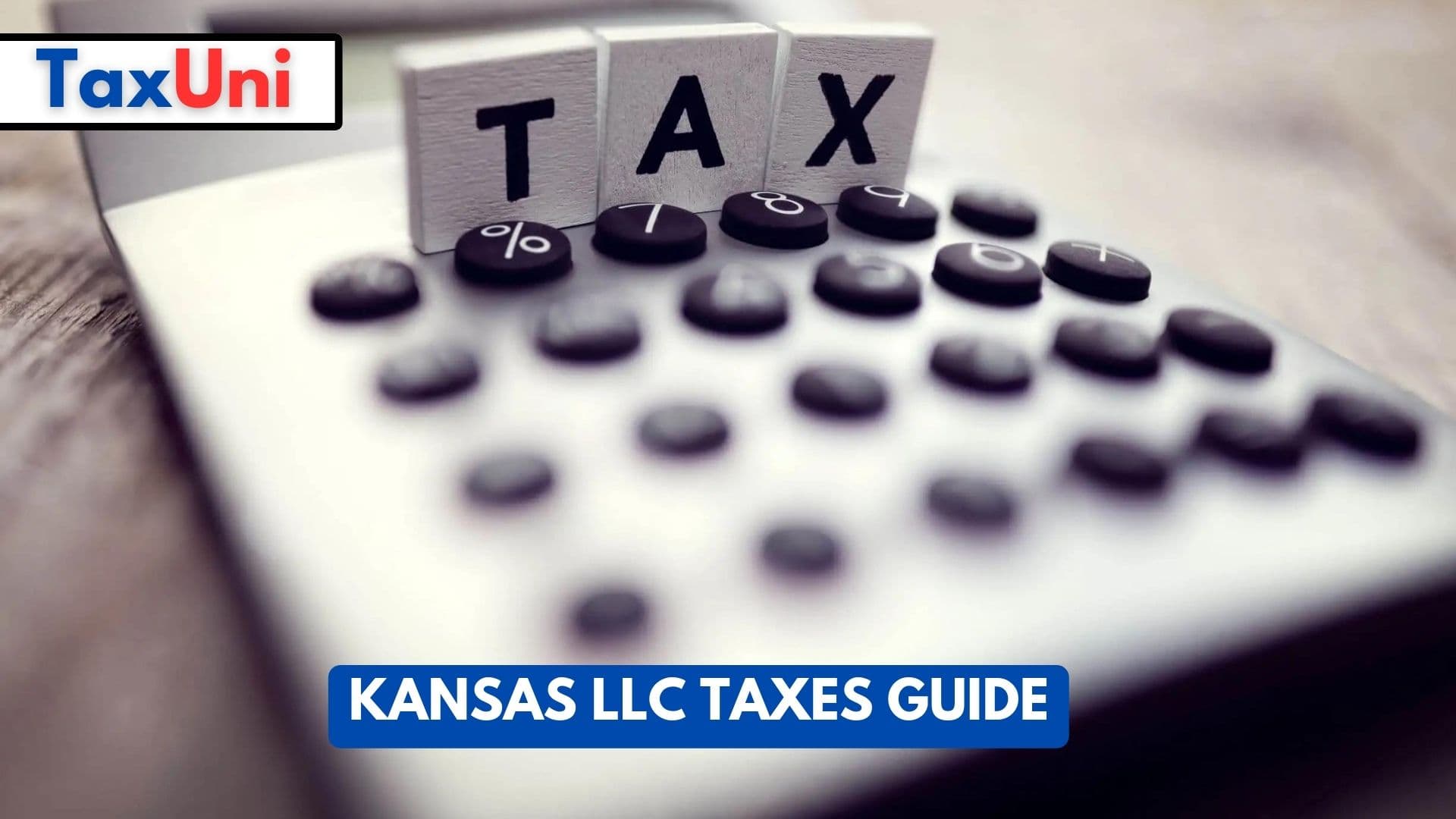Kansas LLC Taxes Guide
This comprehensive guide covers everything you need to know about Kansas LLC taxes, including income tax, sales tax, employment taxes, tax exemptions, and due dates.

Contents
Operating a Limited Liability Company (LLC) in Kansas offers various benefits, including flexible management structures and limited liability protection. However, understanding the tax obligations associated with an LLC in Kansas is crucial for ensuring observance and optimizing your business’s financial health.
An LLC is a hybrid business entity that combines the limited liability protection of a corporation with the tax flexibility of a partnership. In Kansas, an LLC can choose how it wants to be taxed: as a sole proprietorship (for single-member LLCs), a partnership (for multi-member LLCs), or a corporation (if the LLC elects to be taxed as a C-corporation or S-corporation). The choice of tax structure impacts how your LLC will handle state and federal taxes.
Kansas Income Tax
Kansas does not impose a separate entity-level tax on LLCs. Instead, LLCs are pass-through entities, meaning the income is passed through to the owners and reported on their individual tax returns. Here’s how it works based on the chosen tax classification:
- Sole Proprietorship: Single-member LLCs report business income and expenses on the owner’s personal income tax return using Schedule C.
- Partnership: Multi-member LLCs file Form 1065 (U.S. Return of Partnership Income) and issue Schedule K-1 to each member to report their share of the income or loss.
- C-Corporation: LLCs electing to be taxed as a corporation file Form 1120 (U.S. Corporation Income Tax Return).
- S-Corporation: LLCs electing to be taxed as an S-corporation file Form 1120S (U.S. Income Tax Return for an S Corporation) and issue Schedule K-1 to each member.
Kansas Individual Income Tax
Members of an LLC must report their share of the LLC’s income, gains, losses, deductions, and credits on their Kansas individual income tax returns. Kansas has a progressive income tax system with rates ranging from 3.10% to 5.70%, depending on the income level.

Sales and Use Tax
Kansas imposes a state sales tax on the sale of most goods and some services. The base state sales tax rate is 6.5%, but local jurisdictions can levy additional sales taxes, leading to varying total rates across the state.
Use tax applies to out-of-state purchases of goods that are used, stored, or consumed in Kansas when sales tax has not been paid at the time of purchase.
Sales Tax Responsibilities for Kansas LLCs
- Registration: LLCs must register for a Kansas Sales Tax Permit if they sell taxable goods or services.
- Collection and Remittance: LLCs are responsible for collecting the appropriate sales tax from customers and remitting it to the Kansas Department of Revenue.
- Filing: Sales tax returns must be filed periodically (monthly, quarterly, or annually) based on the volume of sales.
Employment Taxes
If your LLC has employees, you are required to withhold and remit employment taxes. These include federal and state income tax withholding, Social Security and Medicare taxes (FICA), and unemployment insurance taxes.
Federal Employment Taxes
- Form 941: Employers file this form quarterly to report federal income tax, Social Security, and Medicare taxes.
- Form 940: Employers file this form annually to report federal unemployment tax (FUTA).
Kansas Employment Taxes
- Withholding Tax: LLCs must withhold Kansas state income tax from employees’ wages and remit it to the Kansas Department of Revenue. Employers must file Form KW-3 annually and Form KW-5 periodically (monthly, quarterly, or annually).
- Unemployment Insurance: Employers must pay state unemployment insurance (SUI) taxes. The Kansas Department of Labor determines the tax rate and issues Form K-CNS 100 for quarterly reporting.
Franchise Tax
Kansas does not impose a franchise tax on LLCs. This can be advantageous compared to states that levy an annual franchise tax based on a business’s net worth or capital.

Tax Exemptions and Incentives
Kansas offers several tax exemptions and incentives to support businesses, including:
- Machinery and Equipment Exemption: Exempts the purchase of certain machinery and equipment used in manufacturing or processing from sales tax.
- Enterprise Zone Incentives: Provides tax credits and exemptions for businesses located in designated enterprise zones.
- Research and Development Tax Credit: Offers a tax credit for expenses incurred in qualified research and development activities.
Due Dates for Kansas LLC Taxes
Staying compliant with tax deadlines is essential to avoid penalties and interest charges. Here are the key due dates for Kansas LLC taxes:
- Individual Income Tax Returns: Due by April 15th for calendar-year taxpayers.
- Partnership Returns: Due by March 15th.
- Corporate Income Tax Returns: Due by April 15th for calendar-year corporations.
- Sales Tax Returns: Due on the 25th of the month following the reporting period.
- Withholding Tax Returns: Due quarterly on the last day of the month following the end of the quarter (April 30th, July 31st, October 31st, January 31st).
- Unemployment Insurance Tax Returns: Due quarterly, typically by the last day of the month following the end of the quarter.





